
Budva: The Jewel of the Adriatic Coast
Nestled along the stunning Adriatic Sea, Budva is a picturesque coastal town in Montenegro that seamlessly blends rich history with modern charm. Known for its medieval architecture, pristine beaches, and vibrant nightlife, Budva offers a unique experience for every type of traveler. Begin your journey in the Old Town, or Stari Grad, a beautifully preserved medieval city encircled by ancient stone walls. Wander through its narrow, cobblestone streets, where you'll discover charming cafes, boutique shops, and historic landmarks such as the Church of Saint John and the Citadel. The town's history spans over 2,500 years, making it one of the oldest settlements on the Adriatic coast. For sun-seekers, Budva boasts some of the most beautiful beaches in Montenegro. Relax on the golden sands of Mogren Beach, or take a short boat ride to the iconic Sveti Nikola Island, also known as Hawaii Island by locals. The crystal-clear waters and picturesque surroundings make these spots perfect for swimming, snorkeling, and sunbathing. As the sun sets, Budva transforms into a lively hub of entertainment. The town is renowned for its buzzing nightlife, with an array of bars, clubs, and restaurants offering everything from traditional Montenegrin cuisine to international dishes. Whether you're looking to dance the night away or enjoy a quiet drink by the sea, Budva has something to offer. Beyond its scenic beauty and vibrant culture, Budva serves as a gateway to Montenegro's natural wonders. Just a short drive away, you'll find the stunning Lovćen National Park, the serene Skadar Lake, and the dramatic Bay of Kotor. Each of these destinations showcases Montenegro's diverse landscape and offers countless opportunities for outdoor adventures.
Local tips in Budva
- Visit the Old Town early in the morning to avoid crowds and enjoy the serene atmosphere.
- Pack comfortable shoes for exploring the cobblestone streets and ancient ruins.
- Take a boat trip to Sveti Nikola Island for a day of sunbathing and swimming.
- Sample local seafood dishes at one of the seaside restaurants.
- Plan a day trip to nearby Lovćen National Park for hiking and panoramic views.
Budva: The Jewel of the Adriatic Coast
Nestled along the stunning Adriatic Sea, Budva is a picturesque coastal town in Montenegro that seamlessly blends rich history with modern charm. Known for its medieval architecture, pristine beaches, and vibrant nightlife, Budva offers a unique experience for every type of traveler. Begin your journey in the Old Town, or Stari Grad, a beautifully preserved medieval city encircled by ancient stone walls. Wander through its narrow, cobblestone streets, where you'll discover charming cafes, boutique shops, and historic landmarks such as the Church of Saint John and the Citadel. The town's history spans over 2,500 years, making it one of the oldest settlements on the Adriatic coast. For sun-seekers, Budva boasts some of the most beautiful beaches in Montenegro. Relax on the golden sands of Mogren Beach, or take a short boat ride to the iconic Sveti Nikola Island, also known as Hawaii Island by locals. The crystal-clear waters and picturesque surroundings make these spots perfect for swimming, snorkeling, and sunbathing. As the sun sets, Budva transforms into a lively hub of entertainment. The town is renowned for its buzzing nightlife, with an array of bars, clubs, and restaurants offering everything from traditional Montenegrin cuisine to international dishes. Whether you're looking to dance the night away or enjoy a quiet drink by the sea, Budva has something to offer. Beyond its scenic beauty and vibrant culture, Budva serves as a gateway to Montenegro's natural wonders. Just a short drive away, you'll find the stunning Lovćen National Park, the serene Skadar Lake, and the dramatic Bay of Kotor. Each of these destinations showcases Montenegro's diverse landscape and offers countless opportunities for outdoor adventures.
When is the best time to go to Budva?
Iconic landmarks you can’t miss
Old Fisherman's Pub
Experience the best of Montenegrin coastal cuisine at Old Fisherman's Pub, where fresh seafood meets stunning sea views in Budva.
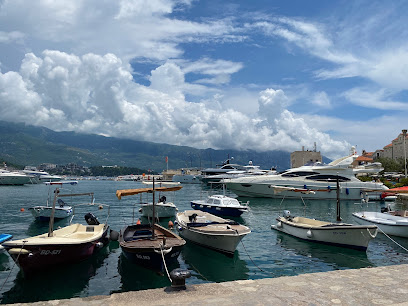
Budva Citadel
Discover the stunning Budva Citadel, a historic castle in Montenegro overlooking the Adriatic Sea, rich in history and breathtaking views.
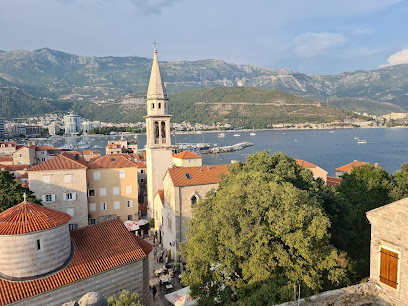
Mogren 2 Beach
Discover the beauty of Mogren 2 Beach in Budva, Montenegro, where golden sands meet crystal-clear waters and stunning coastal views await.
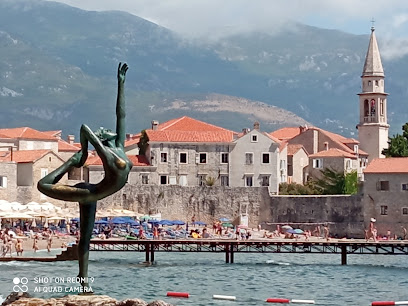
Beach Greco
Experience the beauty and vibrancy of Beach Greco, a stunning coastal gem in Budva, Montenegro, perfect for relaxation and adventure.
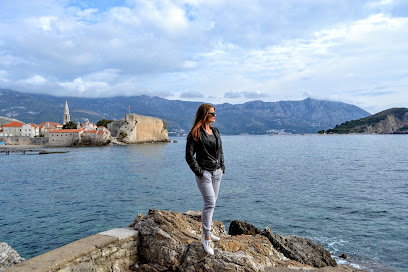
Mogren beach
Discover the stunning beauty of Mogren Beach in Montenegro, where golden sands meet crystal-clear waters for a perfect day of relaxation and adventure.
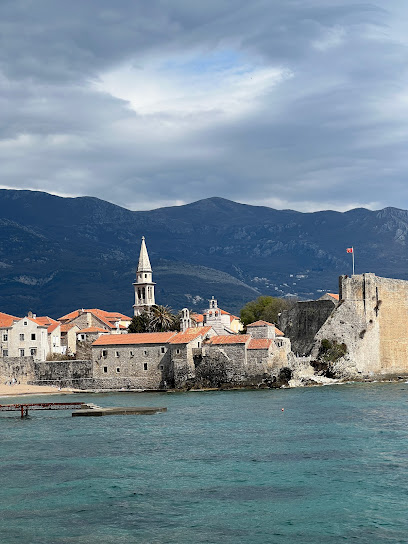
The Church of Sveti Ivan (St. John)
Discover the rich history and stunning architecture of The Church of Sveti Ivan in Budva, a must-see landmark for every traveler in Montenegro.
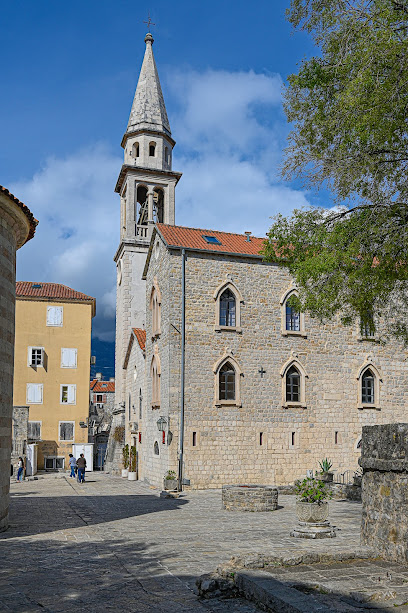
Podmaine Monastery
Experience serenity at Podmaine Monastery in Budva, Montenegro—a spiritual retreat with breathtaking views and rich cultural heritage.
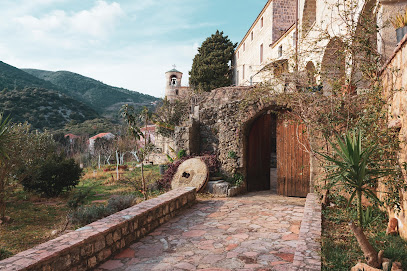
Plaža Ričardova Glava
Experience the enchanting beauty of Plaža Richardova Glava, a stunning beach in Budva, Montenegro, perfect for relaxation and adventure.
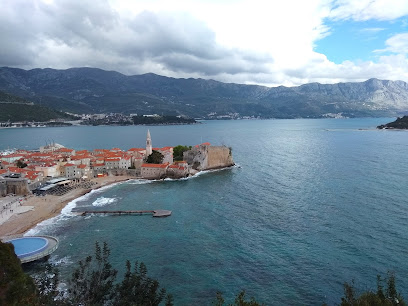
Fort Mogren
Discover the historic charm and stunning views of Fort Mogren, a must-visit fortress in Budva, Montenegro, steeped in history and natural beauty.
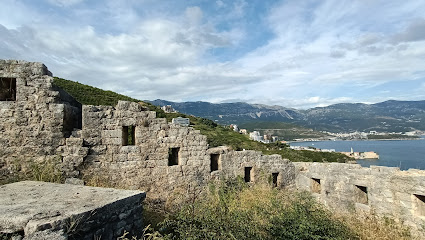
Budva Dancing girl
Discover the Budva Dancing Girl, a captivating sculpture symbolizing the coastal charm and vibrant culture of Montenegro's stunning Budva.
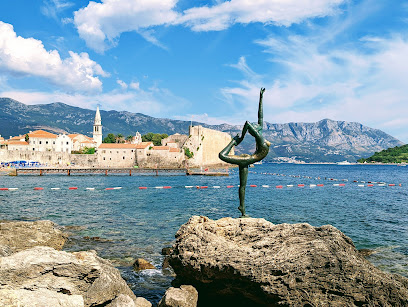
Hawaii Beach
Discover the breathtaking Hawaii Beach in Budva, Montenegro, where golden sands and crystal-clear waters create a tropical paradise for every traveler.
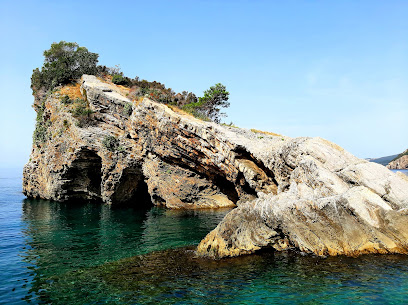
Budva Paragliding - Flying adventure!
Discover the thrill of paragliding in Budva, Montenegro, where stunning coastal views and exhilarating adventures await.
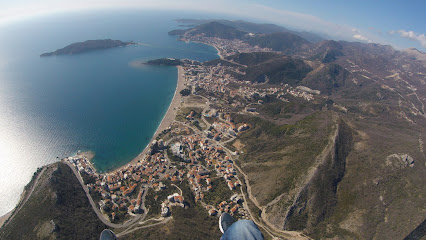
Fort Kosmač
Discover the historical significance and breathtaking views at Fort Kosmač, an iconic landmark in Brajići, Montenegro.
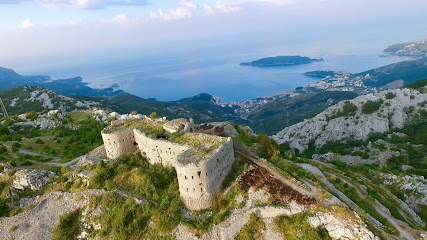
Church of St. Sabba the Sanctified
Explore the Church of St. Sabba the Sanctified in Budva, Montenegro: a serene Orthodox church rich in history and architectural beauty.
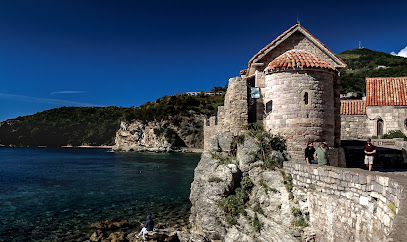
El Mundo
Experience the vibrant nightlife of Budva at El Mundo, where expertly crafted cocktails meet stunning Adriatic views.
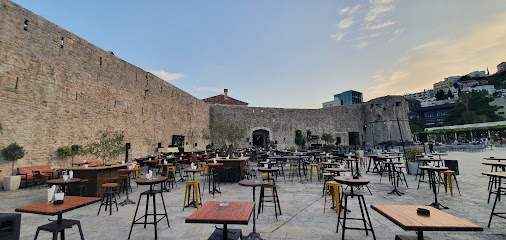
Unmissable attractions to see
Ostrog Orthodox Monastery
Experience the spiritual and architectural wonder of Ostrog Orthodox Monastery, a must-visit destination in Montenegro offering breathtaking views and rich heritage.
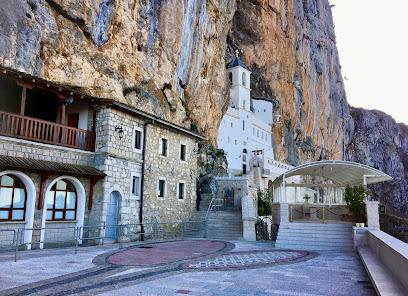
Porto Montenegro
Discover Porto Montenegro, the epitome of luxury on the Adriatic, with its stunning marina, upscale shops, and exquisite dining options.
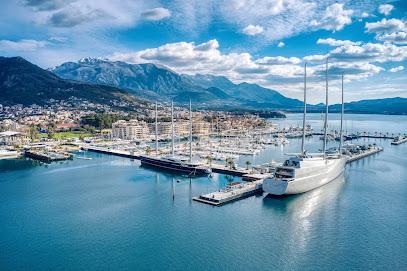
Fortress Old Bar
Explore the historic Fortress Old Bar in Montenegro, a stunning site offering breathtaking views and a glimpse into the past.
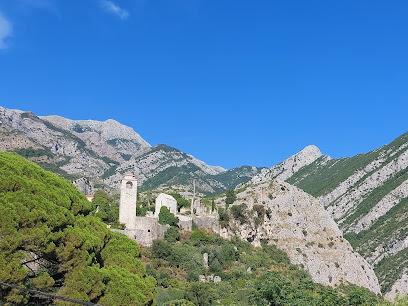
Lovćen National Park
Explore the breathtaking landscapes and cultural heritage of Lovćen National Park, a must-visit destination in the heart of Montenegro.
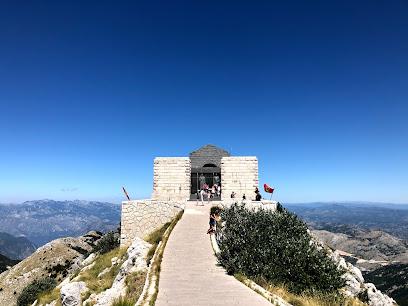
Kampana Tower
Experience the breathtaking views and rich history of Kampana Tower, a must-visit attraction in Kotor, Montenegro, where culture meets stunning landscapes.
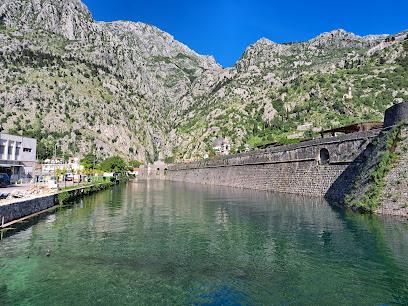
Jaz Beach
Experience the breathtaking beauty of Jaz Beach in Montenegro, where golden sands meet crystal-clear waters and vibrant beach life awaits.
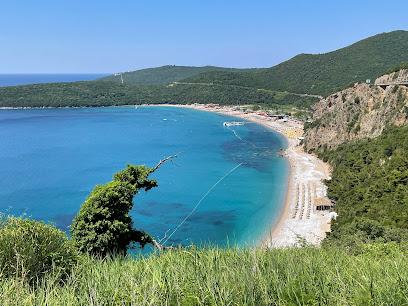
Ferry Kamenari
Enjoy breathtaking views and a quick connection between Kamenari and Lepetane with Ferry Kamenari, a must-visit attraction in Montenegro.
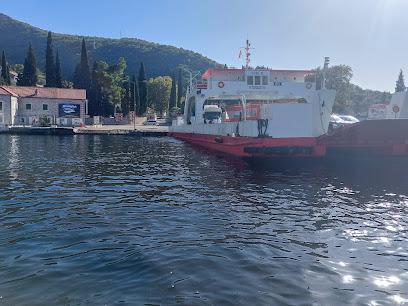
Pasjača Beach
Discover the tranquil beauty of Pasjača Beach in Popovići, a perfect blend of relaxation and adventure along Croatia's stunning coastline.
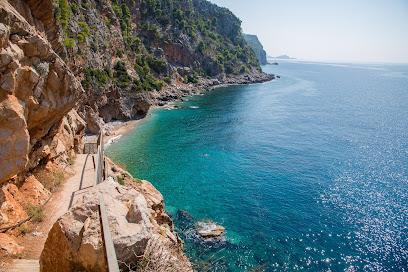
Žanjic Beach
Experience the serene beauty of Žanjic Beach in Mirišta, Montenegro – a perfect blend of sun, sand, and stunning scenery.
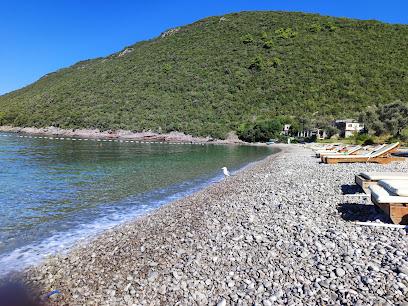
Ploce beach
Experience the tranquility and beauty of Ploce Beach in Krimovica, Montenegro, a perfect escape for sun and sea lovers.
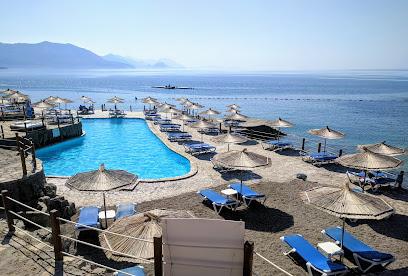
Beach Luchice
Experience the stunning beauty of Beach Luchice in Petrovac, Montenegro, where relaxation meets breathtaking coastal views.
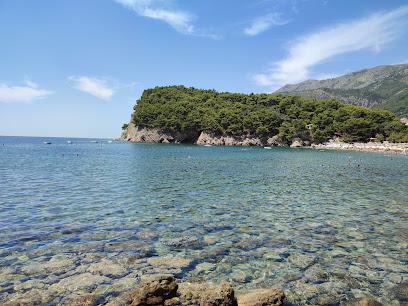
Saint Tryphon's Cathedral
Explore the historic beauty of Saint Tryphon's Cathedral, a stunning Romanesque masterpiece in Kotor, Montenegro, and a vital part of the city's cultural heritage.
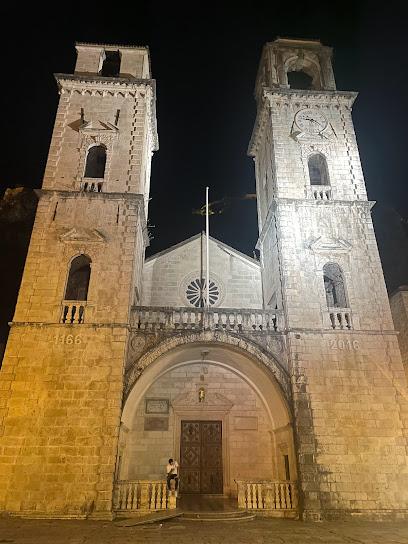
Pavlova Strana Rijeka Crnojeviča Viewpoint
Discover the stunning beauty of Montenegro at Pavlova Strana Rijeka Crnojevića Viewpoint, a breathtaking destination for nature lovers and photographers alike.
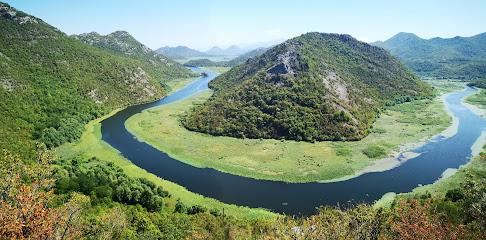
Blue Cave
Experience the breathtaking beauty of Montenegro's Blue Cave, where vibrant azure waters meet stunning coastal scenery in a must-visit natural wonder.
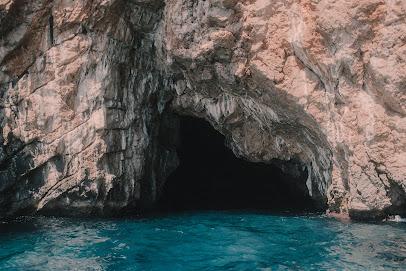
Petrovac beach
Experience the enchanting beauty and vibrant culture of Petrovac Beach, Montenegro's serene coastal paradise.
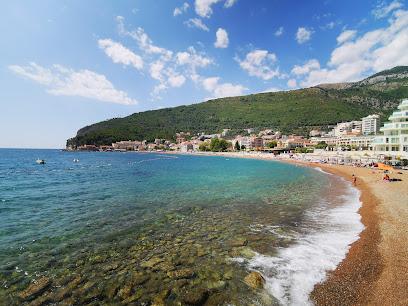
Essential places to dine
Jadran
Discover Jadran: A premier seafood destination on Budva's stunning waterfront offering fresh flavors and breathtaking views of the Adriatic Sea.
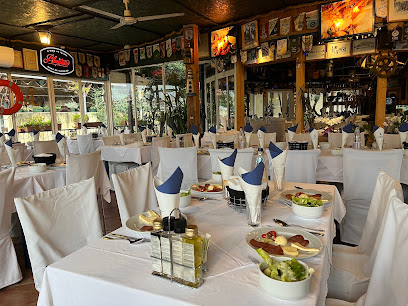
Kužina
Experience authentic Montenegrin cuisine at Kužina in Budva – where flavor meets tradition in every dish.
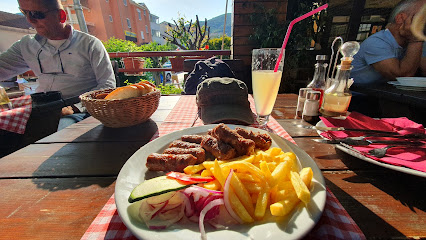
Old Fisherman's Pub
Experience authentic Montenegrin cuisine at Old Fisherman's Pub - where coastal views meet delightful flavors.
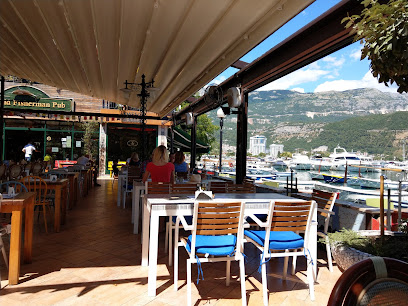
Tropico
Experience authentic Mediterranean flavors at Tropico in Budva - where delicious grilled specialties meet breathtaking Adriatic views.
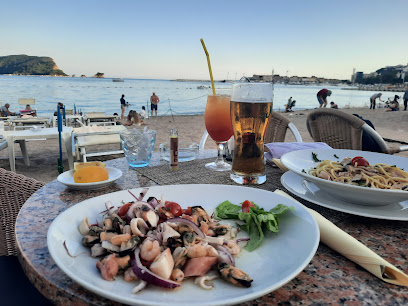
Restaurant Porto
Experience authentic Montenegrin cuisine at Restaurant Porto in Budva - where local flavors meet stunning coastal views.
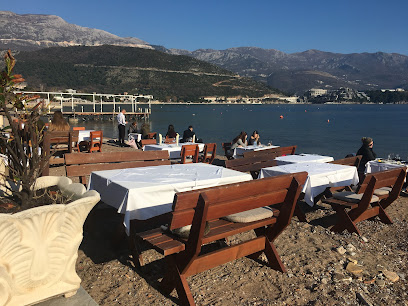
Coco Bar, Food & Sea
Experience exquisite seafood and local flavors at Coco Bar in Budva - where culinary excellence meets stunning seaside views.
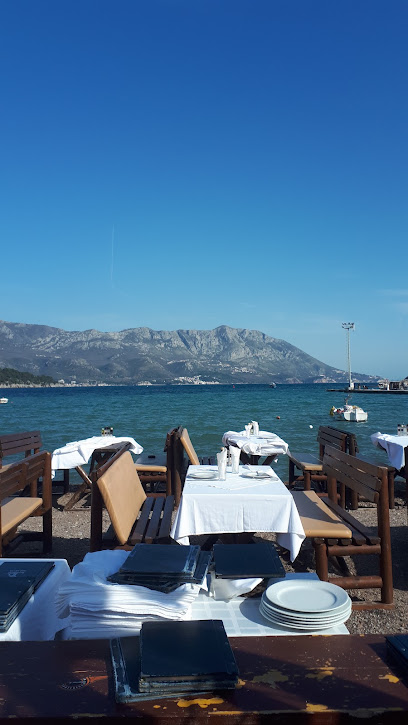
Obala
Experience exquisite Mediterranean cuisine with stunning Adriatic views at Obala Restaurant in Budva.
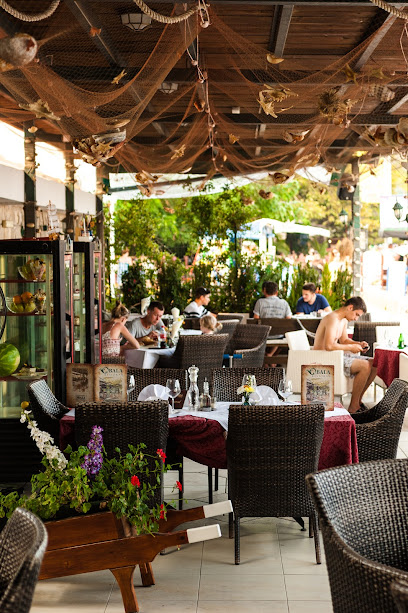
Restoran Vista Vidikovac
Experience exquisite cuisine and breathtaking views at Restoran Vista Vidikovac in Budva, Montenegro - a perfect dining destination.
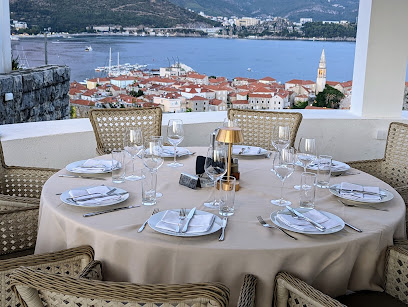
Konoba Bocun
Experience authentic Montenegrin cuisine at Konoba Bocun in Budva - where local flavors meet stunning coastal views.
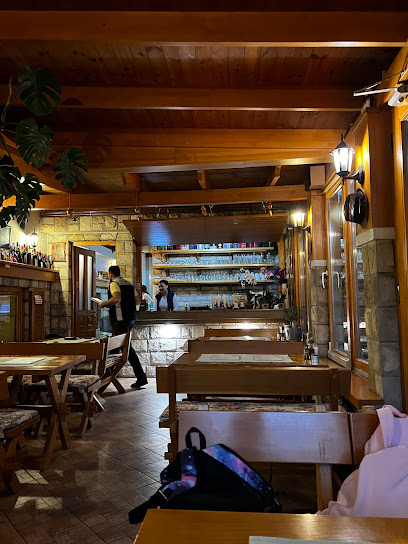
Zeleni Gaj
Discover exquisite Mediterranean flavors at Zeleni Gaj in Budva - where every meal is a delightful journey into Montenegrin cuisine.
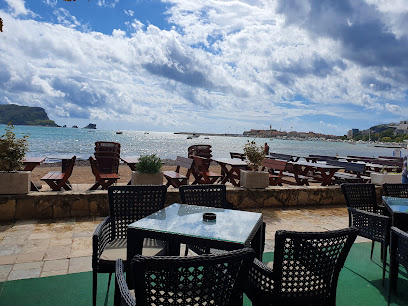
Babaluu Bar & Ristorante
Experience authentic Mediterranean cuisine at Babaluu Bar & Ristorante in Budva - where local flavors meet exceptional service.
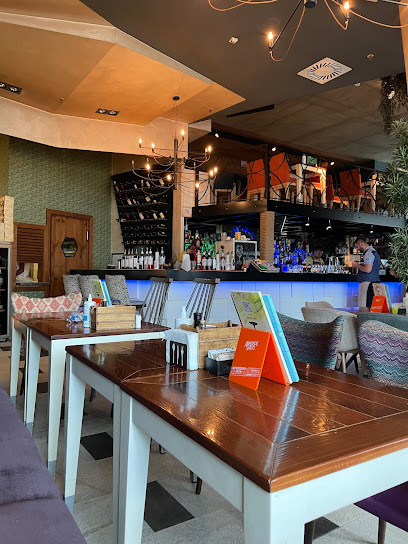
Lim Restaurant
Experience exquisite flavors at Lim Restaurant in Budva - where local cuisine meets stunning beachside views.
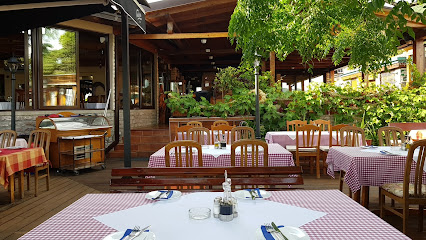
Pastabar
Discover authentic Mediterranean flavors at Pastabar in Budva – where handmade pasta meets local charm.
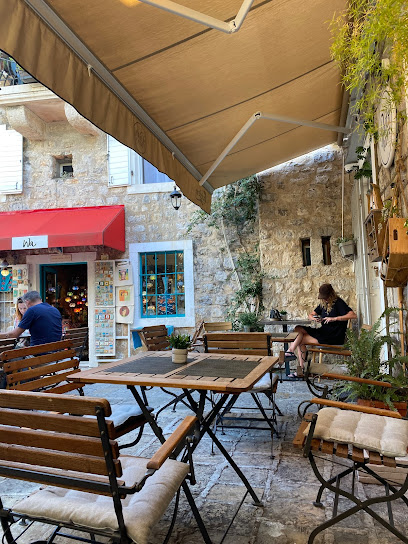
Garden Cafe
Discover Garden Cafe in Budva – A Culinary Haven Offering Italian Delicacies and Refreshing Beers Amidst Scenic Surroundings.
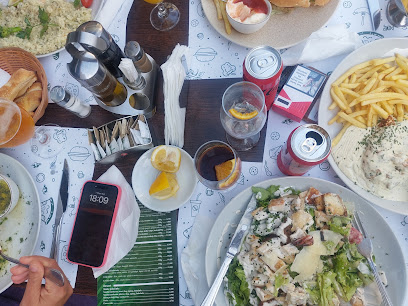
Eatzy - Grill & Casual Food Restaurant
Experience the best of casual American dining at Eatzy in Budva - where flavor meets fun in every bite!
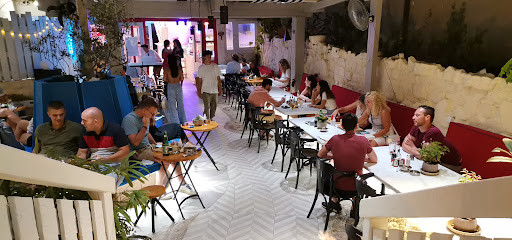
Markets, malls and hidden boutiques
TQ Plaza
Explore TQ Plaza in Budva, Montenegro - a shopping haven with diverse brands, delectable dining, and a vibrant atmosphere for all travelers.
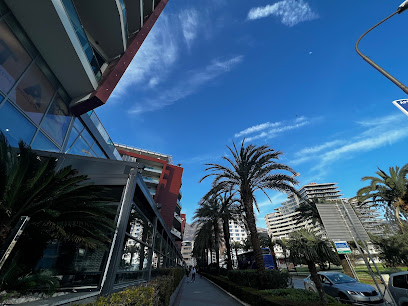
Megamarket
Discover the best of Budva at Megamarket, where local flavors and fresh produce meet a vibrant shopping experience.
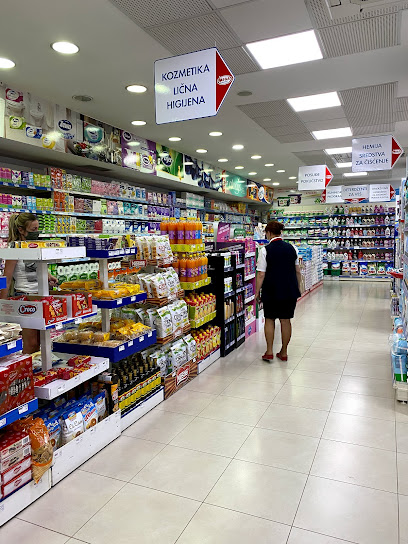
Okov
Explore Okov in Budva, Montenegro - your ultimate destination for home improvement supplies and expert advice.
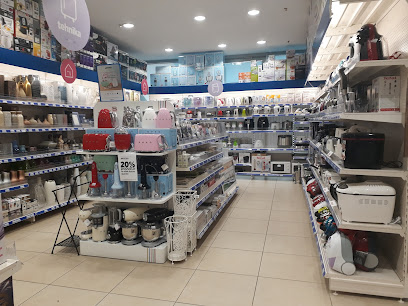
Aroma Market
Discover Aroma Market in Budva, Montenegro - your go-to supermarket for local and international products, perfect for tourists and locals alike.
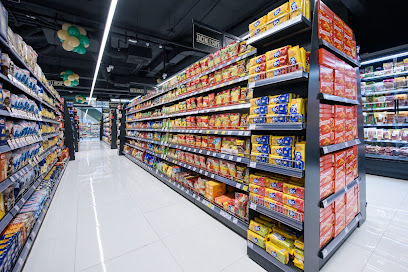
Budva Montenegro
Explore the enchanting blend of beaches, history, and nightlife in Budva, Montenegro, a premier destination on the Adriatic coast.
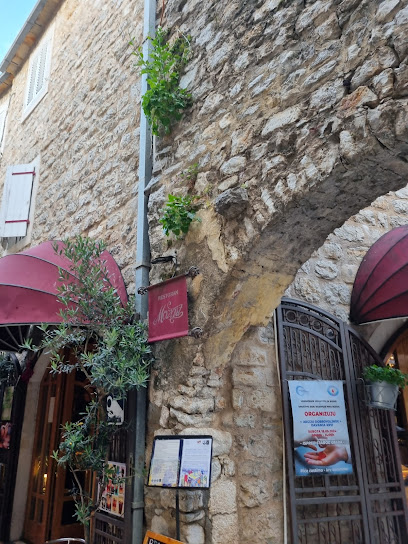
Tea House Budva
Experience the essence of Montenegro at Tea House Budva, where delightful teas and local delicacies await every visitor.
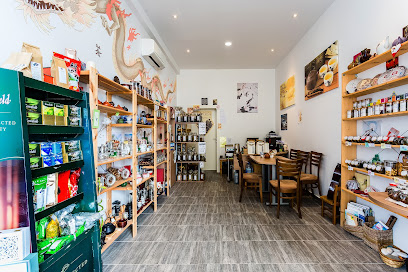
Cungu
Discover unique local treasures at Cungu in Budva, a must-visit store for tourists seeking authentic Montenegrin products.
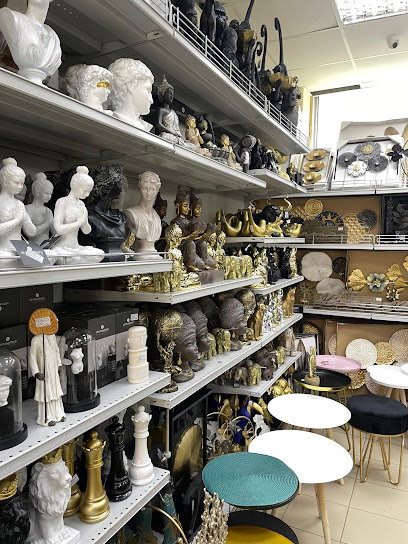
Kuća Hemije Drogerija 11
Discover unique home goods and local craftsmanship at Kuća Hemije in Budva, a must-visit for memorable souvenirs in Montenegro.
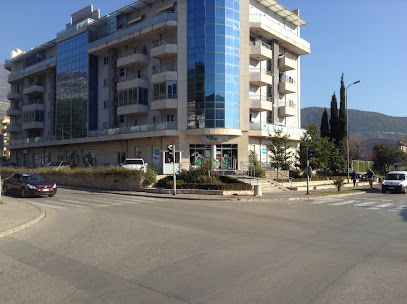
Family Hand Made gift shop BY THE SEA
Discover unique handcrafted souvenirs at the Family Hand Made Gift Shop by the Sea in Budva, Montenegro, where local artistry meets stunning seaside views.
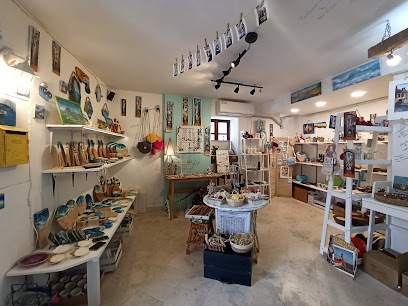
Penso
Explore the literary charm of Penso in Budva, a bookstore that offers a unique blend of local flavor and global titles in a cozy Mediterranean setting.
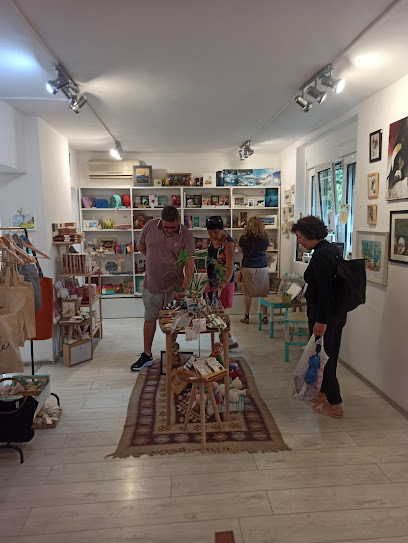
Paradiso
Discover the vibrant fashion scene at Paradiso, the premier clothing store in Budva, Montenegro, offering stylish attire for every occasion.
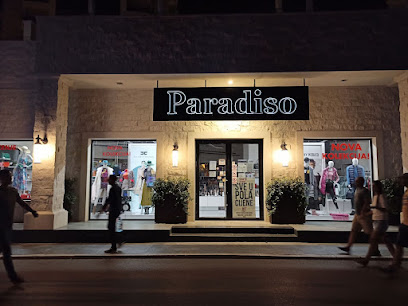
Top Shop Budva
Discover the ultimate shopping experience in Budva at Top Shop, where fashion meets local charm in a vibrant coastal setting.
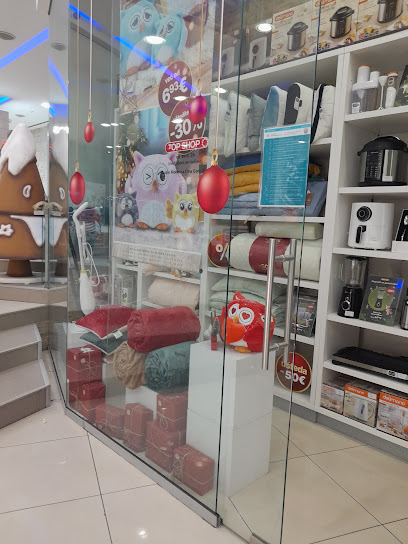
Market Aroma
Explore the vibrant Market Aroma in Budva for fresh local produce, traditional Montenegrin products, and a taste of authentic culture.
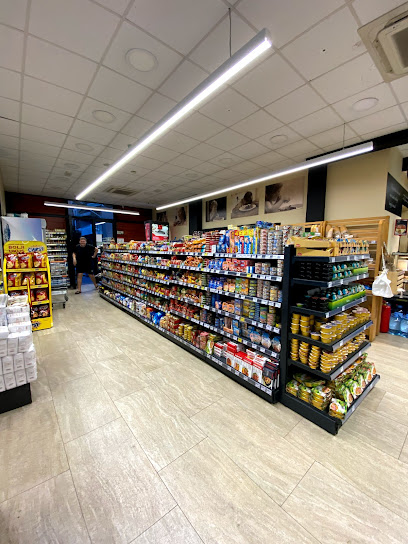
Fashion&Friends
Discover the latest trends in fashion at Fashion&Friends, Budva's top clothing store for stylish men and women.
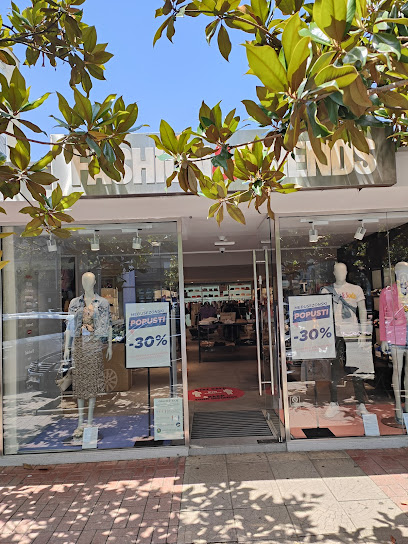
Sea Store Budva
Explore the local charm at Sea Store Budva, where unique souvenirs and artisanal products await to bring a piece of Montenegro home.
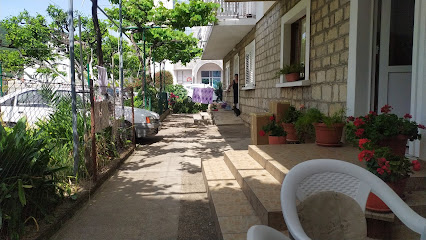
Essential bars & hidden hideouts
Old Fisherman's Pub
Experience authentic Montenegrin cuisine in a charming pub setting at Old Fisherman's Pub, Budva's culinary treasure by the sea.
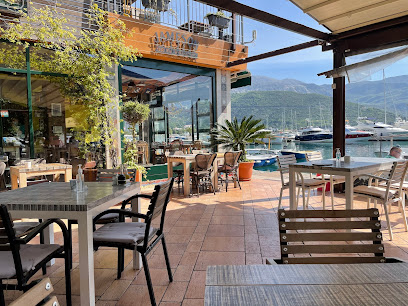
Casper Bar
Discover the lively atmosphere and refreshing drinks at Casper Bar in Budva, Montenegro, a must-visit destination for tourists and locals alike.
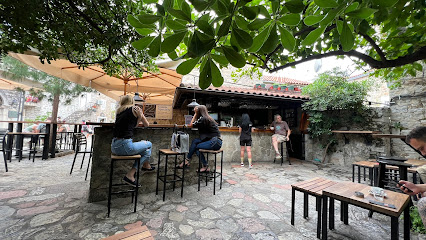
Beer & Bike Club
Discover the Beer & Bike Club in Budva, Montenegro - where craft beers meet thrilling biking adventures amidst a vibrant coastal atmosphere.
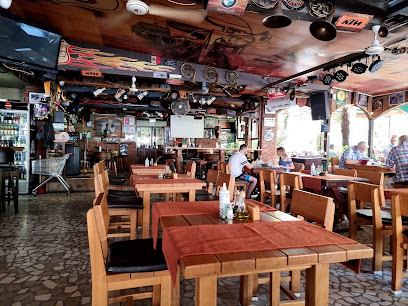
Beach Bar Time Out
Experience the ultimate beachside relaxation at Beach Bar Time Out in Budva, Montenegro. Enjoy refreshing drinks, stunning views, and a vibrant atmosphere.
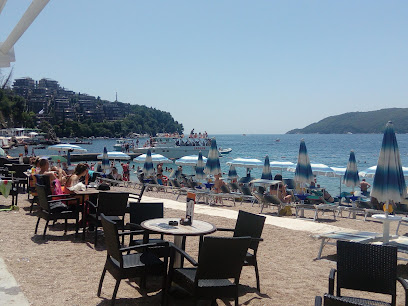
Old Town Pub Budva
Experience the vibrant nightlife of Budva at Old Town Pub, where local culture meets delicious drinks and lively entertainment.
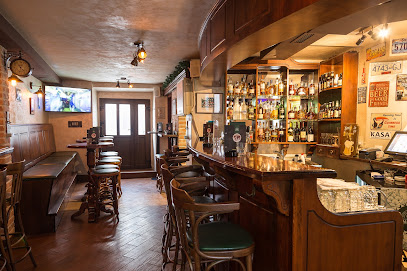
Mañana Budva
Experience the vibrant nightlife of Budva at Mañana Budva, a cocktail bar known for its unique ambiance and exquisite drinks.
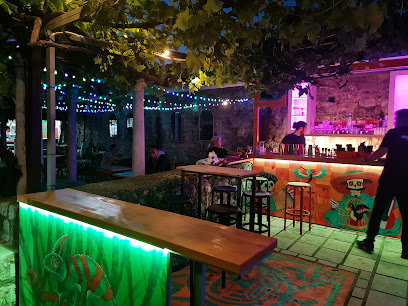
Plazni Bar
Enjoy breathtaking views and a vibrant atmosphere at Plazni Bar, Budva's favorite spot for great drinks and socializing.
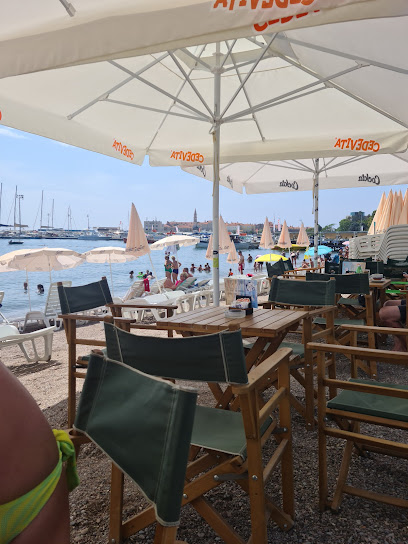
El Mundo
Discover the vibrant nightlife of Budva at El Mundo, a cocktail bar offering creative drinks and a lively atmosphere perfect for unwinding.
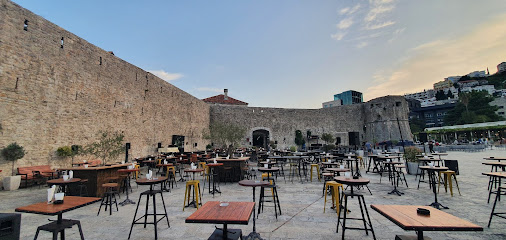
Stara Budva
Experience the vibrant nightlife of Budva at Stara Budva, where local culture meets modern entertainment in a charming pub atmosphere.
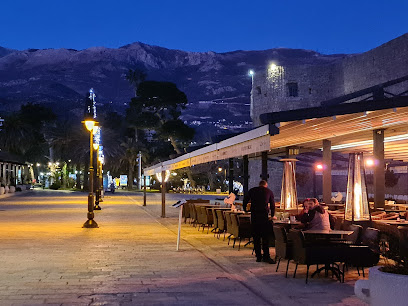
BURA PUB craft & smash
Discover BURA PUB in Budva - a vibrant gastropub offering craft beer and delectable dishes in a lively atmosphere.
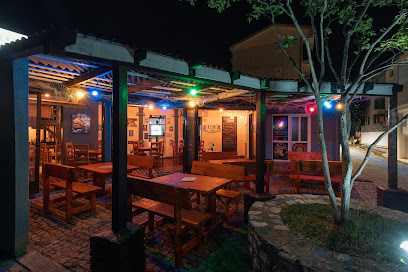
Jeff Bar
Discover the lively atmosphere of Jeff Bar in Budva, where refreshing drinks meet vibrant nightlife in a stunning Mediterranean setting.
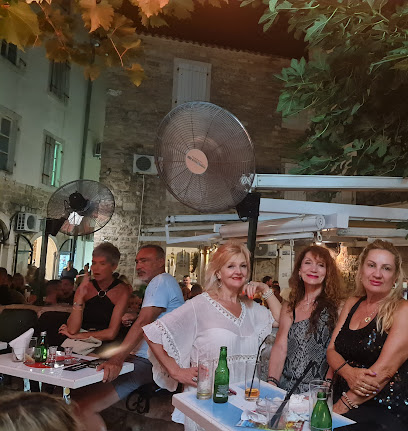
San Trope
Discover the charm of San Trope, a lively bar in Budva offering stunning views, refreshing drinks, and a warm atmosphere for all visitors.
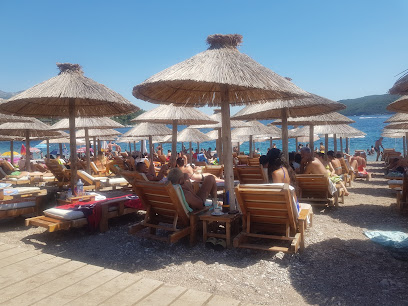
The Prince English Pub
Experience authentic Montenegrin hospitality at The Prince English Pub in Budva, where delicious food and a vibrant atmosphere await.
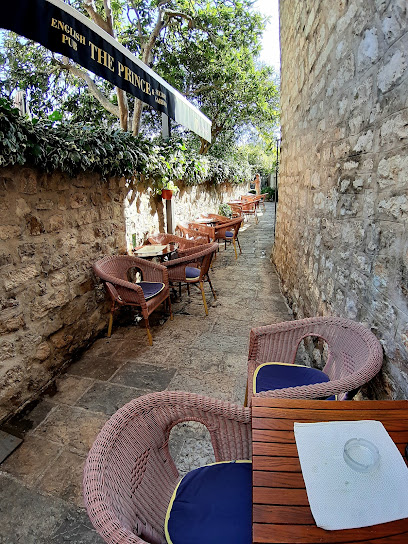
Kuća Pub & Restaurant
Experience Budva's culinary charm at Kuća Pub & Restaurant, a lively oyster bar offering fresh seafood, delicious burgers, and a vibrant atmosphere.
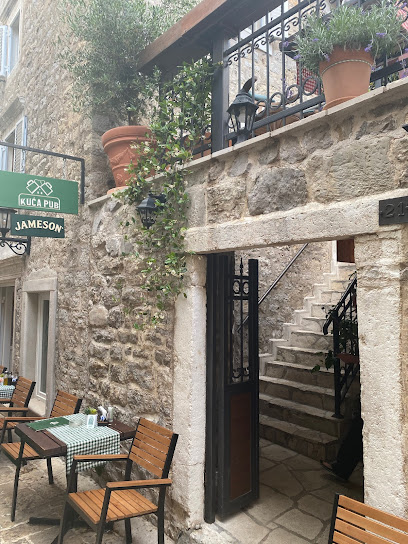
Local Phrases
-
- HelloZdravo
[Zdrah-voh] - GoodbyeDoviđenja
[Doh-vee-jen-ya] - YesDa
[Dah] - NoNe
[Neh] - Please/You're welcomeMolim/ Nema na čemu
[Mohl-eem/ Neh-mah nah cheh-moo] - Thank youHvala
[Hvah-lah] - Excuse me/SorryIzvinite
[Eez-vee-nee-teh] - How are you?Kako si?
[Kah-koh see?] - Fine. And you?Dobro. A ti?
[Doh-bro. Ah tee?] - Do you speak English?Da li govorite engleski?
[Dah lee goh-voh-ree-teh eng-lehs-kee?] - I don't understandNe razumem
[Neh rah-zoo-meh]
- HelloZdravo
-
- I'd like to see the menu, pleaseMolio bih meni, molim
[Moh-lee-oh bee meh-nee, mohl-eem] - I don't eat meatNe jedem meso
[Neh yeh-dem meh-so] - Cheers!Živeli!
[Zhee-veh-lee] - I would like to pay, pleaseŽelim da platim, molim
[Zheh-leem dah plah-teem, mohl-eem]
- I'd like to see the menu, pleaseMolio bih meni, molim
-
- Help!Pomoć!
[Poh-moh-ch!] - Go away!Idi odavde!
[Ee-dee oh-dahv-deh!] - Call the Police!Pozovite policiju!
[Poh-zoh-vee-teh po-lee-tsee-yoo!] - Call a doctor!Pozovite doktora!
[Poh-zoh-vee-teh dohk-toh-rah!] - I'm lostIzgubio sam se
[Eez-goo-byo sahm seh] - I'm illBolestan sam
[Boh-leh-stahn sahm]
- Help!Pomoć!
-
- I'd like to buy...Želim da kupim...
[Zheh-leem dah koo-peem] - I'm just lookingSamo gledam
[Sah-moh gleh-dahm] - How much is it?Koliko košta?
[Koh-lee-koh koh-shtah?] - That's too expensiveTo je previše skupo
[Toh yeh preh-vee-sheh skoo-poh] - Can you lower the price?Možete li spustiti cenu?
[Moh-zheh-teh lee spoo-stee-tee cheh-noo?]
- I'd like to buy...Želim da kupim...
-
- What time is it?Koliko je sati?
[Koh-lee-koh yeh sah-tee?] - It's one o'clockJedan je sat
[Yeh-dahn yeh saht] - Half past (10)Pola (deset)
[Poh-lah (deh-set)] - MorningJutro
[Yoo-troh] - AfternoonPopodne
[Poh-pohd-neh] - EveningVeče
[Veh-cheh] - YesterdayJuče
[Yoo-cheh] - TodayDanas
[Dah-nahs] - TomorrowSutra
[Soo-trah] - 1Jedan
[Yeh-dahn] - 2Dva
[Dvah] - 3Tri
[Tree] - 4Četiri
[Cheh-tee-ree] - 5Pet
[Peh-t] - 6Šest
[Shehst] - 7Sedam
[Seh-dahm] - 8Osam
[Oh-sahm] - 9Devet
[Deh-veht] - 10Deset
[Deh-set]
- What time is it?Koliko je sati?
-
- Where's a/the...?Gde je...
[Gdeh yeh...] - What's the address?Koja je adresa?
[Koh-yah yeh ah-deh-sah?] - Can you show me (on the map)?Možete li mi pokazati (na mapi)?
[Moh-zheh-teh lee mee poh-kah-zah-tee (nah mah-pee)?] - When's the next (bus)?Kada je sledeći (autobus)?
[Kah-dah yeh sleh-deh-chee (ow-toh-boos)?] - A ticket (to ....)Jednu kartu (za ...)
[Yeh-dnoo kahr-too (zah ...)]
- Where's a/the...?Gde je...
History of Budva
-
The history of Budva stretches back over 2,500 years, making it one of the oldest settlements on the Adriatic coast. According to legend, it was founded by Cadmus, a Phoenician prince who was exiled from Thebes. Archaeological evidence suggests that the area was first inhabited by the Illyrians.
-
During the 2nd century BC, Budva came under the control of the Roman Empire. The city developed into an important urban center, featuring sophisticated infrastructure such as roads, aqueducts, and fortifications. Roman influence can still be seen today in the layout of the old town and various artifacts.
-
In the 6th century AD, Budva became part of the Byzantine Empire. It was during this period that Christianity began to take root in the region. The city endured numerous invasions and power changes, including rule by the Slavs, the Serbian Nemanjic dynasty, and the Venetians.
-
From the 15th to the 18th century, Budva was under Venetian control. This period brought prosperity and significant architectural advancements. The Venetians fortified the city walls and built many of the structures that still stand today, turning Budva into a vital maritime and trading hub.
-
While under Venetian rule, Budva faced multiple incursions by the Ottoman Empire. The city was briefly occupied by Ottoman forces in the late 16th century, causing significant damage. However, Venetian control was eventually reestablished, and the city was rebuilt and fortified further.
-
Following the fall of the Venetian Republic in 1797, Budva came under the rule of the Austro-Hungarian Empire. This period saw the modernization of infrastructure and the establishment of new administrative and military facilities. The Austro-Hungarian influence is still evident in some of the city's architecture.
-
During World War II, Budva was occupied by Italian and later German forces. The city suffered damage and loss of life, but it also became a center for resistance activities. Following the war, Budva became part of the Socialist Federal Republic of Yugoslavia.
-
In the late 20th century, Budva emerged as one of the premier tourist destinations in Montenegro. The city has seen significant development, with modern amenities and infrastructure complementing its rich historical and cultural heritage. Today, Budva is known for its vibrant nightlife, stunning beaches, and well-preserved old town.
Budva Essentials
-
Budva, Montenegro, can be accessed via Tivat Airport, which is approximately 20 kilometers away. Alternatively, Podgorica Airport is about 65 kilometers from Budva. Both airports offer international and domestic flights. From the airport, you can take a taxi, shuttle bus, or rent a car to reach Budva. There are also regular bus services from major cities like Kotor, Podgorica, and Dubrovnik, Croatia.
-
Budva is relatively small, and many attractions are within walking distance. For longer distances, taxis are readily available and reasonably priced. Public buses operate within and around the town, connecting to nearby locations like Kotor, Sveti Stefan, and Petrovac. Renting a car or a scooter is also an option if you wish to explore the region at your own pace.
-
The official currency in Montenegro is the Euro (EUR). Credit cards are widely accepted in hotels, restaurants, and larger shops. However, it is advisable to carry some cash for smaller establishments and markets. ATMs are plentiful in Budva, but it is a good idea to withdraw sufficient cash before heading to more remote areas.
-
Budva is generally safe for tourists, but standard precautions should be taken. Avoid poorly lit areas at night and be mindful of your belongings in crowded places such as markets and beaches. While there are no specific high-crime areas targeting tourists, staying vigilant is always recommended.
-
In case of an emergency, dial 112 for immediate assistance. Budva has a local police station and medical facilities. It is highly recommended to have travel insurance that covers medical emergencies. Pharmacies are available throughout the town for minor health issues and over-the-counter medications.
-
Fashion: Do dress modestly when visiting religious sites. Beachwear is acceptable at the beach but not in town. Religion: Do respect local customs and traditions. When entering churches, cover your shoulders and knees. Public Transport: Do be respectful and offer your seat to elderly passengers. Don't eat or drink on public transport. Greetings: Do greet people with a handshake, and a friendly 'Dobar dan' (Good day). Eating & Drinking: Do try local dishes and accept food and drink offerings graciously. Don't refuse hospitality, as it is considered impolite.
-
To experience Budva like a local, visit the daily green market (pijaca) where you can buy fresh produce and local products. Stroll through the Old Town (Stari Grad) to get a feel of its history and charm. Engage with locals who are often friendly and willing to share stories. Don't miss the summer festivals and events that showcase Montenegrin culture, music, and food.
Trending Landmark in Budva
Nearby Cities to Budva
-
Things To Do in Cetinje
-
Things To Do in Kotor
-
Things To Do in Tivat
-
Things To Do in Perast
-
Things To Do in Bar
-
Things To Do in Herceg Novi
-
Things To Do in Podgorica
-
Things To Do in Ulcinj
-
Things To Do in Nikšić
-
Things To Do in Trebinje
-
Things To Do in Dubrovnik
-
Things To Do in Lezhë
-
Things To Do in Bajram Curri
-
Things To Do in Krujë
-
Things To Do in Durres













